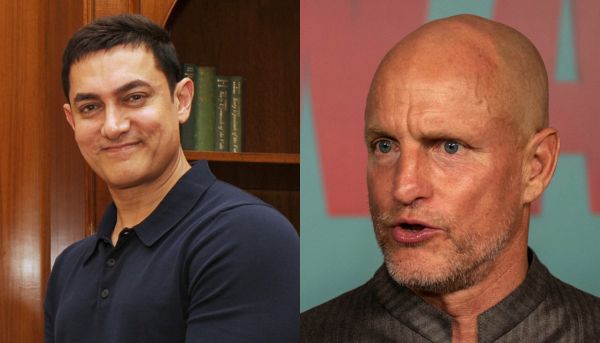
Bollywood actor and producer Aamir Khan, known for speaking his mind and challenging conventional thought, has voiced his displeasure over the ongoing criticism of film remakes in India. In a recent interaction, Aamir called out what he sees as a glaring contradiction in the way audiences and critics view adaptations—particularly the tendency to celebrate Western reimaginings of classic literature, while looking down upon Indian remakes.
A visibly frustrated Aamir didn’t mince words as he remarked, “It’s strange how we happily applaud countless adaptations of Shakespeare around the world — in Hollywood, theatre, even in our own films — but when a filmmaker here tries to remake or reinterpret an Indian film, people suddenly cry foul. They call it lazy, uninspired, or a sign of creative bankruptcy. Honestly, this whole debate has become pointless. ‘Usko bhi band karo’ (stop that too).”
Aamir emphasized that storytelling across cultures has always involved retelling, reinventing, and modernizing past works to reflect new sensibilities. “You think the West doesn’t remake or adapt? How many times have you seen Romeo and Juliet in different formats? West Side Story is a remake. 10 Things I Hate About You is a version of The Taming of the Shrew. These are celebrated as innovative. Why not extend the same respect to our creators here?”
Khan, who has often been involved in content-driven films and meaningful cinema, admitted that while not every remake is successful or well-executed, they shouldn’t all be dismissed outright. “The intent behind the remake matters. Sometimes a filmmaker is trying to bring a great story to a wider or newer audience, or is experimenting with a different tone or treatment. Judging it before seeing the effort isn’t fair.”
The actor’s comments come amid a larger conversation about the Indian film industry’s increasing trend of remakes, particularly of South Indian hits being adapted into Hindi. While many have found commercial success, they’ve also been met with criticism for lacking originality or creative risk.
Aamir, however, views this criticism as not only selective but also culturally limiting. “We’ve grown up watching classics being told again and again — whether it’s mythological tales like the Ramayana or Mahabharata, or modern stories passed through generations. Why then should remakes be treated like a crime?”
He also made it clear that conversations around creativity must remain open and nuanced. “If a remake works, appreciate the adaptation. If it doesn’t, critique it constructively. But don’t reject the entire idea of remakes. That’s not progress; that’s gatekeeping.”
Fans and fellow artists alike have chimed in on his statements, with many echoing the sentiment that Indian filmmakers deserve the same creative space and understanding extended to their global counterparts.
As always, Aamir Khan’s comments have reignited a broader debate on artistic integrity, audience expectations, and the nature of originality in cinema. But if there’s one thing he made clear, it’s this: dismissing remakes as lesser art, while praising foreign adaptations, is not just unfair—it’s outdated.



